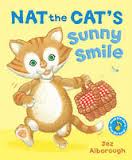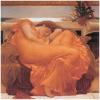MY BLOGS
Jez's Blog

In 1983, like Archimedes before me, I had a eureka moment whilst taking a bath. I hadn’t discovered a new scientific principle, I had simply come up with a rhyming couplet. I ran dripping from the bath and scribbled the words down on a scrap of paper.
‘To keep warm in the arctic air a polar bear wears polar wear. ‘
I was right to think my inspiration was worth scrambling out of the bath for because these became the first words in my first ever picture book. They turned out to be an indication of the artistic direction I was to take because many of the 45 or so books I’ve published since then have been written in rhyme. I’m a sucker for it. Why? Because it’s fun, it’s memorable, it tells the story in a very pleasing way and it brings out the rhythm of language.
My earliest introduction to rhyme came from a record we had at home of Stanley Holloway reading a monologue called Albert and the Lion (by Marriott Edgar). This is a cautionary tale about a boy who goes to the zoo with his parents and gets eaten by a lion. Though I haven’t heard it for four decades I can still remember a few of the phrases in it. That’s one of the great benefits of rhyme: it’s memorable. Apart from the Lancastrian dialect it employs this text is characterised by a good dose of ironic humour. Rhyming is good, rhyming laced with comedy is even better. (I include the full poem in all its glory at the end of this blog).
I have a strong memory also of the rhyming couplets found under each illustration in the Rupert the Bear annuals. I could never understand why they bothered writing out the story at the bottom of the page in prose when the couplets did the same job so precisely, elegantly and with the added benefit of rhyme. I’m very much a ‘less is more’ kind of guy: writing in rhyme forces you to choose words carefully and use them in an economical way.
When I discovered A.A. Milne’s poem Sneazles as a child it was the sheer vivacity of the use of words which inspired me. Milne seems to cram in rhymes wherever he can, in the middle of lines as well as at the end and all of it is underpinned by a rollicking rhythm which pulls you through the story like a doormat on a helter-skelter ride. Here’s a little taste:
Christopher Robin had wheezles and sneezles,
They bundled him into his bed.
They gave him what goes
With a cold in the nose,
And some more for a cold in the head.
They wondered if wheezles could turn into measles,
If sneezles would turn into mumps;
They examined his chest for a rash, and the rest
Of his body for swellings and lumps.’
This playfulness with language is also found in the work of Dr Seuss. It’s quite something to have created a writing style that is so distinct it can be recognised within the space of just a few lines! Here’s a favourite bit from ‘The Grinch Who Stole Christmas’. (For my review of this wonderful book please click here).
Then the Grinch said ‘Giddap!’
? And the sleigh started down
? Toward the homes where the Whos
? Lay a-snooze in their town.
The great Doctor’s zany books never found their way into our house when I was growing up but when I discovered them as an adult I immediately knew I was on to something special. When you consider the period in which his books were first published (the early fifties) its clear to see that he took the art of picture books forward into areas which it had previously never gone. He achieved in children’s books what Jimi Hendrix did in music and Spike Milligan did in comedy. It takes artistic pioneers such as these to open the door for the next generation of artists. I recognise that, though I never read him as a child or even when I started producing picture books, in some ways I owe a great debt to this man.
All these great artists contributed to my love of rhyming and nearly thirty years after publishing that first book about a Polar Bear I’m still at it. My new book Nat the Cat’s Sunny Smile has just been published, and as you can probably tell by the name of my feline protagonist - it’s all told in rhyme. As I said, I’m a sucker for it!
This article first appeared in abridged form in The Telegraph. Find out more about Nat the Cat here.
Albert and the Lion by Marriott Edgar
There's a famous seaside place called Blackpool
That's noted for fresh air and fun
And Mr. and Mrs. Ramsbottom
Went there with young Albert, their son.
A fine little lad were young Albert,
All dressed in his best, quite a swell.
He'd a stick with an 'orse's 'ead 'andle;
The finest that Woolworth's could sell.
They didn't think much to the ocean,
The waves they were piddlin' and small.
There were no wrecks and nobody drownded,
'Fact, nothin' to laugh at at all!
So, seeking for further amusement,
They paid, and went into the zoo,
Where they'd lions and tigers and camels
And cold ale and sandwiches, too.
There were one great big lion called Wallace
Whose nose was all covered with scars;
He lay in a som-no-lent posture
With the side of 'is face on the bars.
Now Albert 'ad 'eard about lions -
'Ow they was ferocious and wild;
To see lion lyin' so peaceful
Just didn't seem right to the child.
So straightway the brave little feller,
Not showin' a morsel of fear,
Took 'is stick with the 'orse's 'ead 'andle
And stuck it in Wallace's ear.
You could see that the lion din't like it,
For givin' a kind of a roll,
'E pulled Albert inside the cage with 'im
And swallered the little lad - 'ole!
Now Mother 'ad seen this occurrence,
And not knowin' what to do next,
She 'ollered "Yon lion's et Albert!"
An' Father said "Ee, I am vexed."
They complained to an animal keeper
Who said "My, wot a nasty mis'ap;
Are you sure it's your boy 'e's eaten?"
Pa said, "Am I sure? There's 'is cap!"
The manager 'ad to be sent for;
'E came and 'e said "Wot's to-do?"
Ma said "Yon lion's et Albert,
And 'im in 'is Sunday clothes, too!"
Father said "Right's right, young feller-
I think it's a shame and a sin
To 'ave our son et by a lion
And after we paid to come in."
The manager wanted no trouble;
He took out his purse right away,
Sayin' "'Ow much to settle the matter?"
Pa said "Wot do you usually pay?"
But Mother 'ad turned a bit awkward
When she saw where 'er Albert 'ad gone.
She said "No, someone's got to be summonsed!"
So that was decided upon.
And off they all went to p'lice station
In front of a Magistrate chap;
They told what 'ad 'appened to Albert
And proved it by showing 'is cap.
The Magistrate gave 'is opinion
That no one was really to blame,
And 'e said that 'e 'oped the Ramsbottoms
Would 'ave further sons to their name.
At that Mother got proper blazin':
"And thank you, sir, kindly," said she -
"Wot, spend all our lives raisin' children
To feed ruddy lions? Not me!"
NEW ON THE SITE
HAVE YOU SEEN?







































